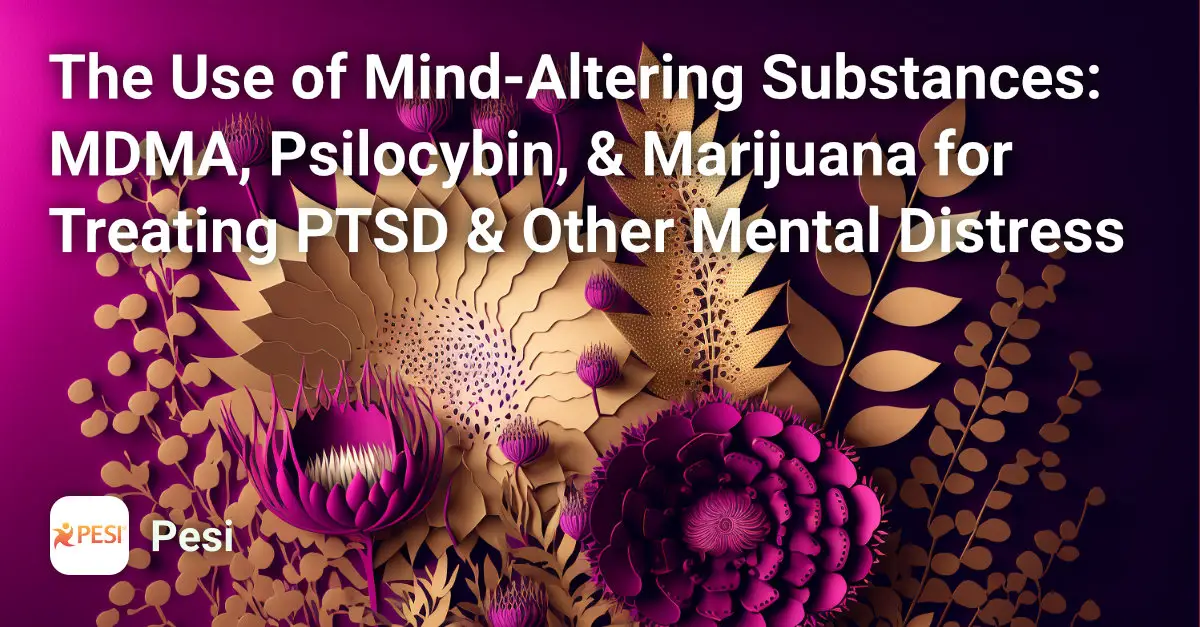The Use of Mind-Altering Substances: MDMA, Psilocybin, and Marijuana for Treating PTSD and Other Mental Distress
This course explores the revived research into psychedelics like MDMA, psilocybin and cannabis for treating PTSD, anxiety, depression and more, including outcomes, therapeutic mechanisms and safe integration with psychotherapy.
- 0 Enrolled
- All levels
- Last updated Aug '23
- English
Course Description
This six-hour course (recording from the 30th International Trauma Conference) explores the therapeutic potential of psychedelics and cannabis for treating PTSD, anxiety, depression and more.
Learn about revived research into MDMA, psilocybin, and marijuana after decades of prohibition. Discover how psychedelic-assisted psychotherapy facilitates trauma healing, with lasting benefits seen in MAPS-sponsored MDMA trials. Review outcomes from psilocybin studies for cancer patients facing end-of-life distress. Examine the promise and limitations of cannabis for mental health. Gain perspectives from pioneering researchers and clinicians conducting psychedelic therapy.
Through video modules and discussions, develop knowledge of how psychedelics reduce defensive reactions, allowing deeper processing of emotions and memories. Consider how these treatments integrate with contemporary psychotherapy. Earn up to 6 CE credits distinguishing between psychedelics, weighing risks and benefits, and preparing to advise clients about safe, effective psychedelic-assisted healing.

Tatayo
Instructor
About Instructor
Tatayo (“Fruit of the Wind”) first arrived in Gabon in 1971 at the age of 21 and became a Gabonese citizen. In 1979, he became the first white person to be initiated into the Bwiti Fang tradition in Gabon. In 1994, he was initiated into the Misokko tradition. As a guide for numerous expeditions and missions, including those of National Geographic, the BBC, and others, Tatayo is considered to have “opened the door” to westerners in Gabon.
Frequently Asked Questions
$100
This course includes
- Lectures 7
- Duration 6 Hours
- Skills All levels
- Language English
- Availability Always
- Certificate CE
Course Tags
Transform Your Life with FLO CoachingAD
Ready to break through personal barriers and discover a deeper sense of fulfillment? FLO Coaching offers one-on-one psychedelic truffle journeys in the Netherlands, guided by experienced professionals. Our carefully crafted experiences combine the power of psychedelics with personalized coaching, helping you gain profound insights and create lasting positive changes.
Elevate your personal development to new heights in a safe, legal, and supportive environment. From preparation to integration, we're there every step of your transformative journey.
Take the first step towards a more resilient, meaningful life. Schedule a free call with FLO Coaching today and unlock your full potential.
